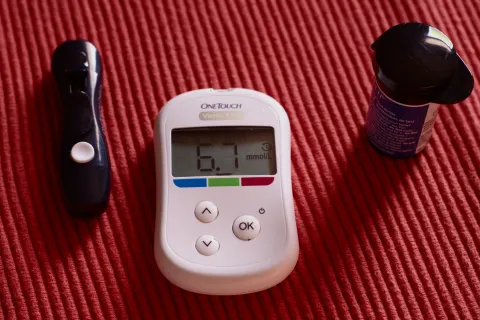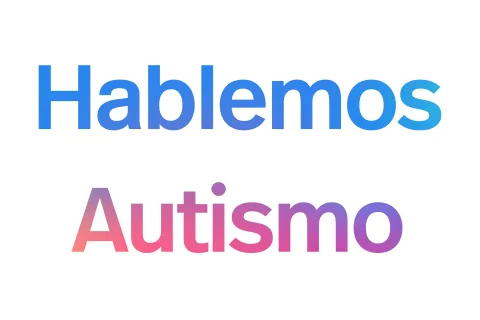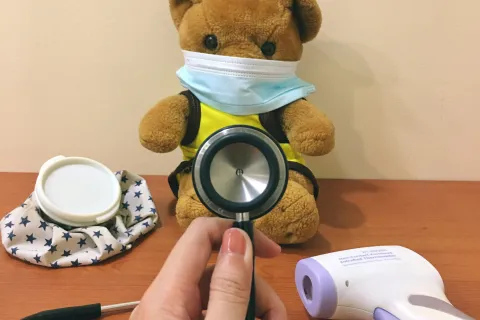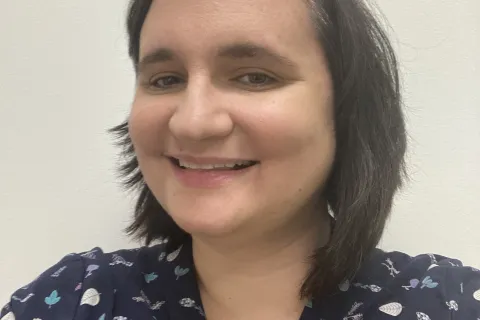Will eating disorder program help with autism-related food aversions?
By Dr. Paul WangThis week’s “Food for Thought” answer is from developmental pediatrician Paul Wang, Autism Speaks’ senior vice president for medical research, and psychologists Eric Butter and Robert Dempster, who both work in the Autism Speaks Autism Treatment Network (ATN), at Nationwide Children’s Hospital, in Columbus, Ohio.
My son is 14.5 years old and on the spectrum. Since he was a baby, his diet has been very limited. For the last year and a half, the only thing he’ll eat at home are milkshakes made with milk, Oreos and ice cream. He’ll also eat the macaroni and cheese served at certain restaurants. His team of doctors – autism specialists at a children’s medical center – are worried because his cholesterol is high. They want him to enter an inpatient program for eating disorders. Do you have information on people on the spectrum participating in this sort of program? How effective is it? Any information is appreciated. I’m desperate to help my son.
Editor’s note: The following information is not meant to diagnose or treat and should not take the place of personal consultation, as appropriate, with a qualified healthcare professional and/or behavioral therapist.
Thank you for reaching out to us with your question. We’re sorry to learn about the difficulties you and your son are facing. Please know that we hear about very similar issues from many other families. You are not alone, and our community is here to help.
In your email, you used the words "eating disorder." But the issues you describe are more commonly referred to as "feeding disorders.”
What’s the difference? “Eating disorders” usually refer to conditions such as anorexia and bulimia. Both are related to problems with body image and fear of weight gain.
By contrast, autism-related feeding disorders usually involve extreme selectivity and sensory-related aversions to food tastes and textures. Sometimes they also involve difficulty with chewing and swallowing.
Feeding disorders are very common among people with autism. For this reason, the Autism Speaks ATN has published the ATN/AIR-P Guide to Exploring Feeding Behavior in Autism. Research suggests that most people with autism struggle with food issues that can affect their health and emotional wellbeing. This tool kit provides guidance from experts in the Autism Speaks Autism Treatment Network. It’s made possible by federal funding for the ATN’s role as the Autism Intervention Research Network for Physical Health (AIR-P). (Follow the title link to download it free of charge.)
From your description of your son's challenges, it sounds like he would benefit from a feeding-disorder program focused on children and adolescents with autism. These programs can be highly effective. In the large majority of cases, they help participants increase the variety of foods they will eat.
The team working with your son would begin by evaluating and addressing the reasons for his self-imposed food restrictions. Do they relate to difficulty coordinating chewing and swallowing? Are there gastrointestinal issues such as severe constipation or esophageal reflux? Is he averse to certain tastes, smells or textures? There may be other behavioral issues that need addressing as well.
A team of doctors and therapists then develops a plan to address these issues. The process can be slow and gradual, and take weeks of treatment. As a parent, you will be an important part of the “treatment team.” You will learn to work with your teen under the guidance of a behavior therapist and possibly speech and occupational therapists as well.
In such expert hands, more than 70 percent of patients show good improvement.
Bottom line: We recommend you make sure that the program being suggested for your teen is a feeding disorder program for patients with autism – not an eating disorder program for patients with body image or weight issues.








